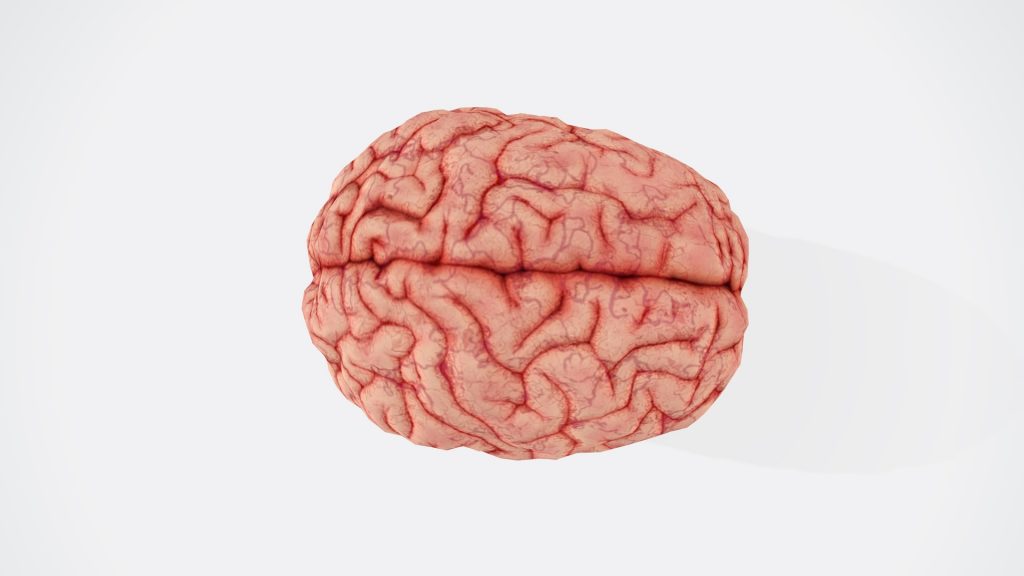6 Ways Resistance Training Improves Your Health
What Is Resistance Training?
Resistance training is defined as exercise that uses extra load, against which we push, producing force through our muscles. So technically, any resistance from sources like bands or weights that we push against is considered resistance training.
Resistance Training
It is widely known that weight training can increase muscle mass and strength, but there are tons of other benefits from strength training on the brain, heart, and joints.
While many different forms of weightlifting emphasize or train a specific skill, or ability or can cause anatomical changes, this article is about weightlifting in general. For example, you can train for hypertrophy, strength, or power which is completely different, but for the most part, studies shown here have mainly focused on 8-12 reps, which goes in the hypertrophy range.
Why do Reps, Sets, Rest, and Load matter?
As we’ve seen before, the type of weight training is crucial for the effects on your health. A quick example would be if you lift 80% RM for 8-12 controlled reps with 1-minute rest, you will mainly experience anabolic benefits such as muscle growth, HGH increase, and energy & libido boost. In opposition training for power or strength, which requires 1-3-5 reps of 90-100RM% and 3 minutes rest, will cause neurological adaptation that enhances neuron-to-muscle connection, increases acetylcholine & strength, and stimulates bone growth.
How Strength Training Affects your Health
This article will reveal to you the different ways that weight training can enhance your health, improve your physical fitness as well as make you look better.
Benefits range from cardiovascular health, self-perception & confidence, muscle gains & fat loss as well as energy & libido Boost.
What Science has to say about Weight Lifting?
A current sports medical report “Resistance Training is Medicine” by Wayne L Westcott, published in 2012 gives us a couple of reasons why resistance training may actually enhance your health. (1)
- As we age we experience loss of muscle mass which is also related to the reduction in metabolic rate and accumulation of fat.
- Resistance training (10 weeks) was shown to increase lean muscle mass by 1.4 kg which speeds up the metabolism by 7% and reduces 1.8kg of fat.
- Improved movement control, physical fitness performance, walking speed, functional independence, self-esteem, and cognitive abilities were also positive side effects of RT.
- Weight training can also improve blood sugar control, and insulin sensitivity, and reduce visceral fat.
- RT can potentially improve cardiovascular health by reducing LDL “the bad cholesterol” and triglycerides, reducing blood pressure, and increasing the good or HDL cholesterol.
- It was also shown that weight training can aid in improving bone mineral density and stimulate bone development which may delay or prevent osteoarthritis, and ease lower back pain or joint discomfort
If that wasn’t enough to convince you to start training, here is a bit more in-depth review of the top six ways resistance training can improve your health and physical fitness.
6 Ways Resistance Training Improves your Health
1. Supports Cardiovascular Health
The best way to “measure” cardiovascular health is by measuring the factors already known to us. The cardiovascular system, as a complex of veins, arteries, capillaries, heart, and blood mainly functions to transfer oxygen and nutrients to each cell. So the count of red blood cells is important. White blood cells are involved in immunity and protect us from diseases and infections. But after you do a blood image, what’s there left to see?
How you feel daily, how far you can run at a certain tempo, what’s your VO2max tells a lot about your cardiovascular system or aerobic performance. The better aerobic performance we have, the lower the odds of having problems with our heart.
So it makes a lot of sense that running and cardio exercise are main for the heart, but the science shows that weightlifting can be great too, and here’s why:
- Exercise can improve heart health mainly by reducing blood pressure, stabilizing blood sugar, and improving cholesterol profile and blood circulation.
- A Combination of cardio and weightlifting was shown to assist in the reduction of blood pressure and cardiovascular disease risk. (2)
- Even though exercise can acutely increase inflammation, it can reduce, delay, or prevent chronic low-grade inflammation over time. (3)
- Meta-analysis has shown that resistance exercise at high intensity is more beneficial in stabilizing blood sugar and insulin levels compared to low or moderate. (4) Plus it has the potential to improve glucose tolerance, and insulin sensitivity, as well as restore metabolic flexibility. (5)
- Resistance training can improve your cholesterol profile by lowering LDL cholesterol and triglycerides while increasing HDL cholesterol at a higher intensity, which can theoretically improve heart health. (6)
2. Improves Body Composition
One of the main effects of weightlifting as we all know is increasing muscle mass. This means a lot more for your health than just being better looking in the mirror. Theoretically the more muscle you have the more efficiently you can use calories because you have faster metabolism meaning you burn more calories.
- Weightlifting can increase muscle size by a combination of mechanical tension and metabolic stress, being at the highest efficiency from 10-12 reps, 80% RM 60s rest. This is the hypertrophy protocol. (7)
- More muscle to your frame means faster metabolism at the same time. This allows you faster and more efficient burning of calories which is highly dependent on your genetics, sex, and age too. Weight training was shown to boost the RMR resting metabolic rate by 9% in men. (8)
- Resistance training in combination with proper diet strategy was shown most effective for fat loss, being superior to just diet or training. (9)
- In 149 adults, a weight training program for 18 months has shown that resistance training protocol was superior to aerobic training for weight loss and muscle mass maintenance. (10)
- Aside from fat loss and muscle-building effects weightlifting was shown to positively affect bone strength and increase bone development and bone mineral density. (11)

3. Increases Strength, Power, and Athletic Performance
It goes without saying that one of the most important reasons weight training has had such development, structured programs, and research behind it is that it can improve athletic performance.
This may look unimportant for regular, non-athletic people but your physical fitness correlates with your overall health. Plus increasing your performance in the department of strength comes with many other energy, libido, and confidence-boosting effects.
- Strength training can improve basketball performance, by increasing control, and balance but also by increasing vertical jump explosiveness. Weight training is essential for professional athletes.
- Properly structured weight training with specific-situation exercise and intramuscular coordination can significantly improve one’s ability to control and balance their body in a challenging situation.
- Resistance training was also found to reduce injury risk in soccer players and improve performance when properly scheduled. (12)
- Strength training can improve and speed up connective tissue regeneration, increase tendon strength, and prevent skeletal injuries. (13)
4. Improves Confidence & Self-Concept
As we all know, sportspeople are usually more extroverted and confident. That’s not always a coincidence. Physical activity can significantly improve our self-esteem, self-confidence, and self-perception.
Strength training makes you look better, adding muscle to your frame and shredding fat off. This makes your self-image appear sexier and more confident at the same time.
Exercise is also associated with higher levels of hormones like dopamine, serotonin, and testosterone which play a major role in our mood, feeling of happiness, satisfaction, motivation, and sexual desires which therefore affect our confidence.
- Strength training is associated with a reduction of depressive symptoms, anxiety symptoms, and improved mood, along with tension and anger management. (14)
- Resistance training can also improve your posture by strengthening your scapular retractors and spine stabilizers, allowing you to fully extend your thoracic spine and prevent slouched shoulders or any other irregular posture to occur. Confident people have an upright posture, while introverts have mostly slouched shoulders with a forwarding head posture.
- Strength training also boosts mental toughness and resilience, making you more self-disciplined. This will allow you to further overcome obstacles and tackle your daily challenges with more confidence.
- A study found that training also boosts various dimensions of body image, and improves life quality, and self-perception in older women. (15)

5. Supports Brain Function
If your body is healthier, your brain will be too. The effects of exercise extend far beyond losing fat or gaining muscle. Enhancing your health in many different areas can also improve the way you think, reduce inflammation in your brain, and balance hormones.
- For a more in-depth review of strength training effects on the brain, feel free to check this article.
When we say smart we usually think of people who read books, study or do research a lot. But the truth of the matter is, their brain is good in some areas related to information. Smart extends far beyond information like text or numbers.
What an elite basketball or soccer player can do, the doctor can’t even imagine. This is all function of the brain, so learning skills in sports maintains a healthy brain keeping our brains plastic, just as learning a new language or instrument.
- Studies have found that exercise can increase BDNF or Brain-Derived Neurotrophic Factor which plays a major role in brain cell regeneration, maturation, growth, and maintenance of nerve cells. In older adults, this 12-week process led to an increase in BDNF by 31% which decreased after de-training. (16)
- As we age, both our brains and muscles shrink. Research has shown that resistance training that helps preserve muscle mass and strength can positively impact our aging and brain performance too. Lifting weights can initiate functional brain changes which can improve executive function and lead to reduced white matter atrophy. (17)
6. Aids in Energy & Libido Boost
Any type of exercise stimulates HGH and Testosterone, the two main anabolic regeneration hormones. These two hormones are also linked to our sexual health. Exercise is known to stimulate sex hormones and feel- good chemicals in our brain, like dopamine and serotonin.
- A study done back in 1989 showed that a 12-week hypertrophy training program (10reps) in the duration of 45-60 minutes acutely raised levels of growth hormone by 44.9 in young and 3% in elderly subjects. (18)
- It turns out that activity level, physical health, and exercise habits highly affect women’s sexual desire. Cardiovascular endurance is a good predictor for arousal in women, and there is a positive correlation between physical fitness and sexual drive. Also, to point out, unhealthy or obese women had higher results of sexual dysfunction. (19)
- Resistance training along with cardio was also shown to increase energy expenditure while training as well as free-living energy expenditure separate from exercise training. (20)
The energy-boosting effects of exercise are quite logical in the long run because with each bout of exercise we are bringing more fresh oxygen into our body, while also improving blood flow transfers more nutrients, and rejuvinates our cells.
Research Limitations
*Studies have some limitations, important to evaluate the validity of their results. Here’s a highlight of some and NOT ALL studies (and limitation), shown in this article, for context.
- Use of submaximal treadmill test instead of maximal effort test to asses cardiorespiratory fitness.
- Weak control of external factors *hormones, genetics, sleep quality, muscle memory, nutrition.
- Difficult to compare different weightlifting metrics in different people and objectively measure the most effective *some people are trained, some untrained, have different genetics, tons of other factors influence muscle growth, muscle memory, protein quantity, regeneration ability, etc.
- Relatively small sample size *(n)10 young men, (n) 9 young women, (n) 11 older men, (n) 10 older women.
- Aged data or data older than 10 years *1987, 2001, 2012.
- Use of self-reported scale values *gives subjective values
- Lack of randomization, limited generalizability.
conclusion
Resistance training can be highly beneficial for your health and physical fitness. It offers tons of benefits ranging from cardiovascular health, muscular gains, fat loss, and brain performance up to improved self-image and confidence. Resistance training, by enhancing muscle mass and its maintenance can potentially help us live longer and healthier lives.
Frequently Asked Questions
cardio vs. strength, which one is better for overall health?
The answer to this is complex. You should always opt to include a balanced ratio of both strength training and cardio in your workouts. The reason is that cardio is more aerobic exercise, great for burning calories, improving blood flow and oxygenation while the anabolic side, growth, strength, and regeneration is highly improved by strength training.
Can strength training improve brain health?
Yes, Strength training can improve and support optimal brain function, executive function, and neuroplasticity. It maintains optimal protein synthesis which is crucial for both your muscles and your brain, plus naturally boosts secretion of HGH, the hormone which supports growth and regeneration, allowing for healthy brain aging. Some studies show that it can also improve mood, increase white matter, and BDNF levels.
Is weightlifting healthy, if it improves body composition, resulting in fat loss and muscle gain?
Improving your body composition alone can improve your health. Overweight or obese people are at higher risk of cardiovascular diseases in general. Since weight training increases muscle mass, boosts your metabolism, helps you lose fat, and improves circulation, it is considered healthy.
Can strength training improve heart health?
Strength training, along with cardio can improve heart health due to its effects on cholesterol profile, blood flow, and blood pressure. Resistance training can increase HDL cholesterol while reducing LDL cholesterol, improve blood circulation, and lower or stabilize blood pressure.
Does strength training have other benefits, aside from muscle mass and strength gains?
Yes, strength training has many other potential benefits such as:
improved cardiovascular health, cholesterol profile, and blood flow
improved balance, intramuscular coordination, and strength
improved body composition, reducing fat percentage increasing lean muscle mass
improved confidence, self-image, self-perception, self-worth, and Posture
improved mood, reduced symptoms of depression, anxiety, and stress
hormone balance, and increase in libido (due to higher testosterone)
higher ability for regeneration (due to higher secretion of HGH
improved brain health (neuroplasticity, executive function, white matter)
Of course, it goes without saying that these benefits vary from the individual (genetics, sex, age) but for the most part, properly structured strength training has a high potential of improving many markers related to health, physical fitness, and longevity.








